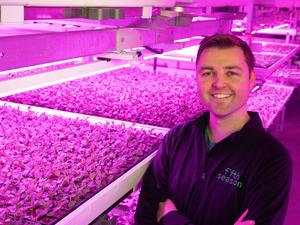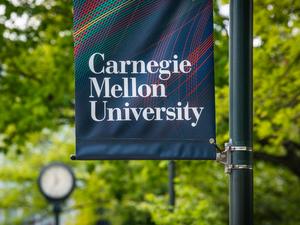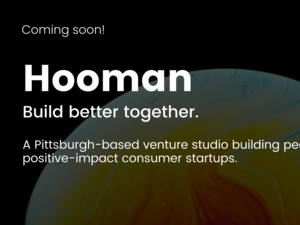
An independent nonprofit organization looking to offer an array of services for the public and private sectors that work in the Pittsburgh tech- and innovation-based economies is ready to make itself more known in the region after years of collaboration and study of the local industry.
As part of that process, the Partnership to Advance Responsible Technology (PART), released its first foundation-supported research report titled "How Pittsburgh Can Build a Better Innovation and Emerging-Technology Economy Through Connectivity, Density, and Collaboration." The 86-page document offers an analysis of the ecosystem's current state and presents themes that it should focus on in the years to come to better ensure Pittsburgh's competitive edge in growing companies that work in AI, robotics and other technology fields, as well as to cement itself for continued success in that realm for the decades that follow.
Lance Lindauer, executive director for Pittsburgh-based PART, led the report's research efforts, funding for which came from the Richard King Mellon Foundation. The report's insights are the result of 200 interviews and survey responses, as well as input from various writers, researchers, academics and industry thought-leaders.
In the report, PART identified five macro themes for Pittsburgh’s innovation and emerging-technology economy to focus on; capital, leadership, talent and education, strategy and data. Across those themes, the report suggests a total of 33 recommendations the region should take action on or invest in, some of which aren't novel or unique concepts but are rather identified as a way better unify and showcase the collective needs of the region.
For example, some of PART's recommendations touch on the importance of increasing the number and type of startup accelerator programs in the region or developing ways to encourage new regional and national investors into the local capital pool. The organization also recommends investing in programs aimed at young and diverse populations like arts, events and hobbyist spaces, which could, PART argued, result in not only the growth of a more diverse and younger population for the region, but also a population that produces more diverse innovations and thus more diverse startup companies.
PART made it clear not to assign these recommendations to specific groups or organizations, nor did it want to rank them on a scale of most crucial to least crucial. More important, Lindauer said, was the idea of letting those who do work directly relating to or touching on these recommendations to then come to the conclusion that these are efforts their organization should pursue.
"We are not going to lean in and say, which (recommendation) is more important and who should do it because that's not the commentary we should provide as an organization, that's up to the ecosystem to decide. We're absolutely happy to partner on anything and we are working in harmony with a few organizations on a couple of them, but there's a lot of work to be done and there's a lot to go around," Lindauer said. "Our real goal is to help give regional decision-makers the tools and data to make those decisions to really help all of us as citizens and taxpayers … This report really encompasses how we see our role, and the role that Pittsburgh could play in this greater conversation, in this greater global conversation."
Lindauer said PART's formation started a few years ago following a series of discussions he had with others who work in or who are knowledgeable about the region's strengths as it relates to its technological prowess. He said it's important to focus on realizing the region's current strengths and identifying ways it can be successful in the future and in a way that's accessible and inclusive as well.
"Is there an opportunity to create an organization here that as companies in AI really flourish, and as companies in robotics really flourish, that they're doing it in a way that benefits sort of the whole economy in general, not just like per se one company or one industry?" Lindauer said. "How does it really work to raise the proverbial sea for all ships, as well as then to do it in a responsible way?"
The organization's first report is just the first of many to come, Lindauer said. PART's work partners include the RK Mellon Foundation, the Henry L. Hillman Foundation, The Grable Foundation, InnovatePGH, Innovation Works, Bosch, PNC Financial Services Group Inc. and Pittsburgh Public Schools, among others.









